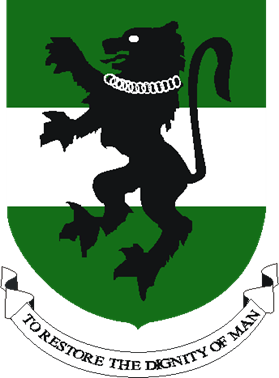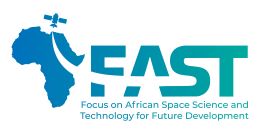
The University of Nigeria Nsukka (UNN) is a federal university in Enugu State, Nigeria. UNN was founded by Dr. Nnamdi Azikiwe (Governor General of Nigeria from 1960 to 1963 and first President of Nigeria from 1963 to 1966) in 1955 and formally opened for academic activities in 1960. The founding of the University of Nigeria in 1960 – the same year Nigeria gained political independence – was informed by the urgent need to produce the highly skilled men and women that will fulfill the manpower needs of the newly independent Nigerian state. Thus, since inception UNN has strived to be in the forefront of manpower training as well as research and development in the country. UNN has a tradition of excellence for which the institution is known within and outside the country. This excellence is seen in our preference for distinguished academics as faculty members, the state/standard of infrastructure for teaching and learning, curriculum content and research output.
The University of Nigeria currently operates more than 100 academic departments across 17 faculties and offers over 100 undergraduate programmes and over 200 postgraduate programmes for a student population of over 36,000. The University does so across four campuses: Nsukka (the main campus); Enugu campus (UNEC); University of Nigeria Teaching Hospital (UNTH), in Ituku-Ozalla and the University of Nigeria Aba campus (UNAC). There is also a University of Nigeria Nsukka Business School. UNN also has the Roar Nigeria Hub within its main campus. The Hub is a private sector initiative from two of the university’s engineering students. Its aim is to encourage entrepreneurial activity among students and faculty, investing in viable student-led ideas, and to help link academia, the public and industry. At UNN, the Department of Physics and Astronomy is offering Astronomy programmes at BSc, MSc and PhD levels, with Astronomy starting as far back as 1970. The department has a very active astronomy and astrophysics research group with over 25 members (faculty staff and postgraduate students). Some of the areas of ongoing research interest in the department are radio astronomy (observational and theoretical), cosmology, extra-galactic astronomy, high energy astrophysics, star formation, cosmic rays modulation and solar energetic particles. The Department is currently anchoring the PAPSSN Intra-Africa Project in UNN. In Nigeria, the department is at the forefront of manpower development in Astronomy and Astrophysics research and innovation in close collaboration with the partners at CBSS. UNN is part of the universities 100% funded by the FGN and are consistently receiving research grants from government bodies like CBN, Tetfund etc. These grants worth over $300,000.
Role in the project
WP3: UNN will lead the WP3 for content creation for the Centre of Excellence and will exploit its vast experience and network of researchers to facilitate the creation of high quality academic contents for the centre in collaboration with partner HEIs and other stakeholders.
WP4: UNN staff will participate in the discussion leading to the publication of white papers on “gender and disadvantaged groups cross-cutting issues in the member countries and institutions” and standardization of STEM curricula and credit transferability in Africa HEIs.”
WP7: UNN will contribute in preparing content for outreach and Dissemination of project events/results through its active participation in the committee for it.



